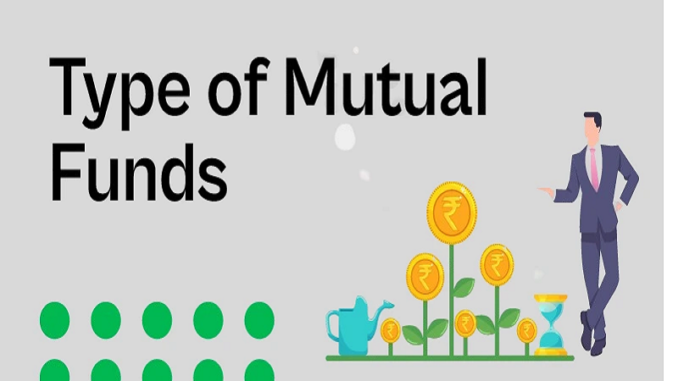
Mutual funds have become a popular way for people to invest their money in India. These investment tools allow even those with little money to put their savings into a diverse range of assets. All mutual funds are not created similarly, though. There are many types, each with its features and goals. \You can invest in these mutual funds through an online share trading app. In this blog, we’ll look at the main types of mutual funds you can find in India.
Different Types of Mutual Funds
Now, let’s explore the different types of mutual funds:
1. Equity Mutual Funds
Equity mutual funds mainly buy shares of companies. These funds can be risky, but they also have the potential to give high returns. Equity funds come in various types:
- a) Large-cap Funds: These invest in big, well-known companies.
- b) Mid-cap Funds: They invest in medium-sized companies.
- c) Small-cap Funds: These focus on smaller, growing companies.
- d) Multi-cap Funds: They invest in companies of all sizes.
Equity funds are good for people who can take some risk and want to invest for a long time.
2. Debt Mutual Funds
Debt funds invest in things that give a fixed return, like government bonds or company deposits. These are less risky than equity funds, but they usually give lower returns. Some types of debt funds are:
- a) Gilt Funds: These invest in government securities.
- b) Corporate Bond Funds: They invest in bonds issued by companies.
- c) Liquid Funds: These invest in very short-term debt instruments.
Debt funds are good for people who want steady returns and don’t want to take much risk.
3. Hybrid Mutual Funds
Hybrid funds, as the name suggests, mix different types of investments. They usually invest in both shares and debt instruments. This helps to balance risk and returns. Some types of hybrid funds are:
- a) Balanced Funds: These keep a balance between shares and debt.
- b) Monthly Income Plans: These focus more on debt but also invest some money in shares.
Hybrid funds are good for people who want a mix of growth and safety.
4. Index Funds
Index funds try to copy a market index, like the Sensex or Nifty. They buy the same shares that are in the index, in the same proportion. These funds are passive, which means they don’t try to beat the market. They just aim to give returns similar to the market.
5. Sector Funds
These mutual funds focus on specific sectors of the economy, like technology, healthcare, or banking. They can give high returns if the sector does well, but they’re also risky because they lack diversity.
6. Tax-saving Funds
Also known as Equity Linked Savings Schemes (ELSS), these funds help you save tax. If you invest in these funds, you can get a tax deduction under Section 80C of the Income Tax Act. These funds mainly invest in shares and have a lock-in period of three years.
7. Exchange Traded Funds (ETFs)
ETFs are like index funds, but they can be bought and sold on the stock exchange like shares. They usually have lower costs than regular mutual funds.
How to Choose the Right Mutual Fund?
Choosing the right mutual fund depends on many things:
- Your Financial Goals: What do you want to achieve? Are you saving for retirement, or do you need money in a few years?
- Your Risk Tolerance: How much risk can you take? If you’re young and have a steady job, you might be able to take more risk than someone who’s close to retirement.
- Time Horizon: How long can you keep your money invested? Some funds are better for long-term investment, while others are good for short-term goals.
- Costs: Look at the expense ratio of the fund. This is the yearly fee the fund charges. Lower costs can mean better returns for you.
- Past Performance: While past performance doesn’t guarantee future results, it can give you an idea of how well the fund has been managed.
Remember, it’s often a good idea to spread your money across different types of mutual funds. This can help balance your risk and potential returns.
Conclusion
Mutual funds offer a way for people to invest in the stock market and other assets without needing a lot of money or knowledge. By understanding the different types of mutual funds, you can make better choices about where to put your money.
If you’re new to investing and looking for a reliable share market app, you might consider apps like HDFC SKY. It lets you open a trading and Demat account without any account opening fees. Plus, you can enjoy zero account maintenance fees for the first year on their stock trading app.

Leave a Reply
You must be logged in to post a comment.